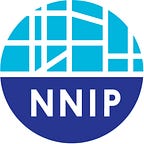Addressing Housing Challenges and Their Impacts on Community Health and Well-Being
by Abby Boshart
A publication of the Local Data for Equitable Communities Resource Hub
Racist laws, policies, and practices in the United States have determined who can own property, what type of housing they can live in, and where it is located. Having access to quality, affordable, and safe housing and the ability to choose where to live affects people’s health and opportunities to build wealth.
To support local efforts to address these and other inequities across the country, the Urban Institute and Robert Wood Johnson Foundation created the Using Local Data to Address Structural Racism grant program. Given the significant history of discriminatory policies and the large impact of housing on community health and well-being, many of our grantees have designed projects that seek to address housing conditions that have been shaped by structural racism. With these projects, grantees will collaborate with local stakeholders to support tenant organizing, explore restorative land disposition, reduce housing instability, improve housing quality, and increase housing mobility.
Supporting tenant organizing
There is a significant power and wealth gap between landlords and their tenants, which local laws and the court system often perpetuate. Climbing rents and other unfair practices have pushed renters to organize in communities across the country, and our grantees are focusing on organizing efforts in their own communities. In Albuquerque, New Mexico, Amparo aims to gather data on renters’ housing needs as a foundation for a coordinated movement and advocacy around renters’ rights. Similarly, with a resident-led survey and analysis, Para Los Niños is engaging residents, community organizations, and city and county departments in the central and eastern parts of Los Angeles, California, to develop a strategy to address health inequities caused by gaps in affordable, quality, and stable housing.
Exploring restorative land disposition
Discriminatory urban planning policies and lending practices have led to hypervacancy in Black neighborhoods, destroying wealth, opportunities, and health for residents. To address hypervacancy in Pittsburgh, Pennsylvania, Grounded Strategies will explore the causes and impacts of land loss and disinvestment and develop a framework for racially just land use and recycling processes, including no-cost transfers and low-cost purchases of land.
Reducing housing instability
Evictions and housing insecurity disproportionately affect communities of color because of structural issues that limit job and homeownership opportunities and increase the share of households that are cost burdened. Affordable, stable housing provides a platform from which to build wealth and invest in business and education. Data Works NC will analyze how eviction processes and their impacts vary across race, ethnicity, and income level in Durham, North Carolina, with the goal of sharing insights with local leaders and informing the efforts of Legal Aid of North Carolina. Local Initiatives Support Corporation (LISC) Philadelphia aims to develop community-based eviction prevention strategies in disproportionately affected neighborhoods in Philadelphia, Pennsylvania.
The threat of housing instability has grown more acute for many communities of color as corporate owners buy more and more single-family homes to use as permanent rental properties. These investors have made homeownership more difficult for community members, and research shows they are also more likely than traditional landlords to evict tenants. Family Housing Fund will survey renters and examine the impacts of corporate-owned single-family rentals in Minneapolis, Minnesota. They will examine strategies for how local leaders should respond to the rise of institutional investor-owners, including by developing policies on preventing displacement, protecting tenants, and regulating out-of-state investors.
Insecurity is not just an issue for renters. As tenants fall behind on rent, property owners can also struggle to meet their mortgage payments — a phenomenon disproportionately affecting smaller landlords of color. Recognizing this, the Essex County Community Organization in Massachusetts aims to understand how these challenges are interconnected for tenants and landlords who are immigrants and support policies to stabilize rents.
Improving housing quality
People of color are more likely to live in substandard housing because of chronic disinvestment in their communities. Formerly redlined communities have lower life expectancies and a higher incidence of chronic conditions. To address housing quality disparities and their associated health risks, Child Poverty Action Lab seeks to identify the home repair needs in disinvested communities in Dallas, Texas, and assess the reach and equity of Dallas home repair programs.
Increasing housing mobility
Racist policies and practices have historically excluded people of color from certain neighborhoods with more resources and opportunities while denying investment in the neighborhoods that they live in. The Maryland Center on Economic Policy and its partner Baltimore Neighborhood Indicators Alliance will explore different methods of rent setting for Baltimore’s housing choice voucher program and assess how the use of small-area fair market rents might reduce rental inflation and give households with vouchers more choices about where to live.
